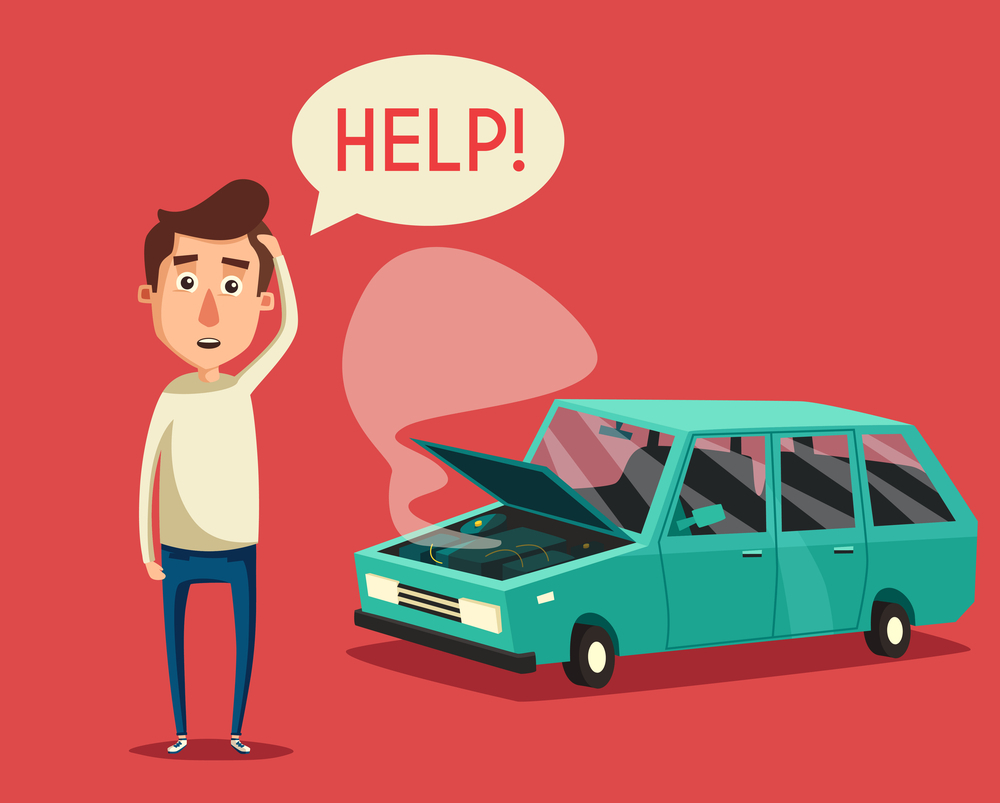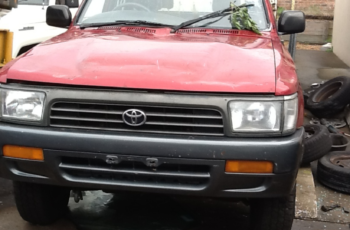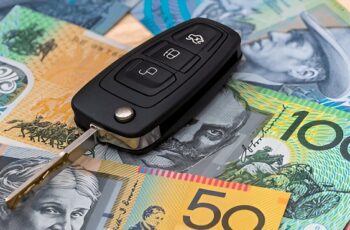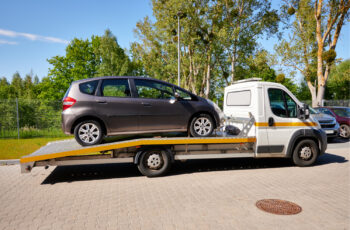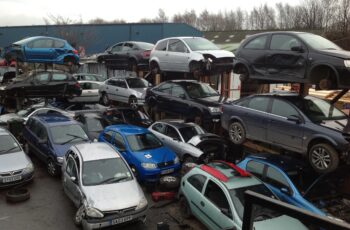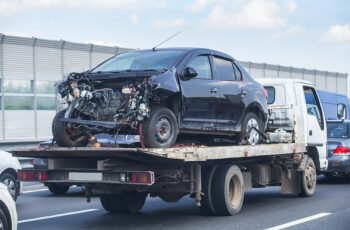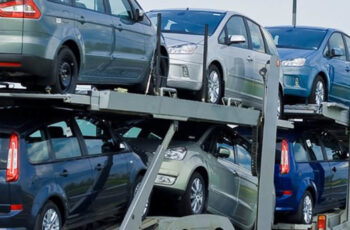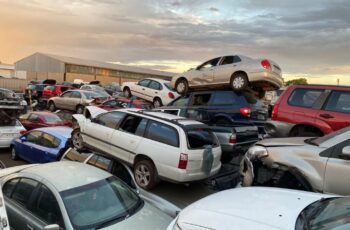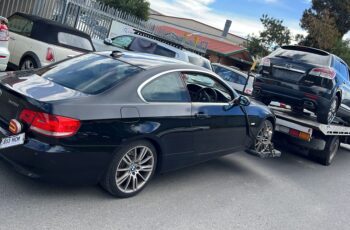Are you experiencing the issue of your car overheating and wondering why it’s happening? It’s a common problem that many car owners face and it’s important to address it promptly to avoid more serious damage to your vehicle. One of the reasons for overheating can be related to the cooling system of your car. However, it could also be caused by low coolant levels, thermostat malfunction, or engine issues. While preventative maintenance can help avoid overheating, if the problem persists, you may need to seek professional help.
In the meantime, if you have a damaged car that you need to get rid of, you can always consider the services of cash for unwanted cars or damaged car removal companies. These services can help you dispose of your unwanted car and provide you with some cash in return. Let’s take a closer look at the reasons for car overheating and preventative measures to avoid it.
What causes a car to overheat?
There are several potential reasons why a car may overheat, including:
● Faulty cooling system: If the cooling system is not functioning properly, the engine can quickly overheat. This can be due to a malfunctioning fan, broken water pump, or damaged hoses.
● Low coolant level: The coolant in a car’s radiator helps to regulate the engine’s temperature. If the coolant level is low, the engine can overheat.
● Leaking coolant: A leak in the cooling system can cause coolant levels to drop, leading to overheating. Common causes of leaks include a cracked radiator, damaged water pump, or faulty hoses.
● Thermostat malfunction: The thermostat controls the flow of coolant through the engine. If it is not working properly, the engine may not receive enough coolant, causing it to overheat.
● Water pump failure: The water pump circulates coolant through the engine to prevent overheating. If it fails, coolant will not circulate properly, and the engine can overheat.
● Clogged radiator: A radiator that is clogged with debris or mineral deposits can prevent proper circulation of coolant, leading to overheating.
● Engine issues: Certain engine problems, such as a blown head gasket or a cracked engine block, can cause overheating by allowing coolant to leak into the engine.
● External factors: Hot weather, high altitude, and heavy towing or load can all put extra strain on a car’s cooling system and cause it to overheat.
It’s important to address the root cause of overheating promptly to prevent further damage to the engine. Regular maintenance, including checking coolant levels and flushing the radiator, can help prevent overheating issues. If your car does overheat, it’s important to safely pull over and turn off the engine to prevent further damage.
How to prevent car overheating?
Here are some key points on how to prevent car overheating:
Regular maintenance:
➔ Ensure that your car’s cooling system is in good working condition.
➔ Have your mechanic check the coolant level and quality during routine maintenance.
➔ Replace worn parts such as hoses, belts, and thermostats before they fail.
Avoid prolonged idling:
➔ Prolonged idling can cause your car to overheat, especially in hot weather.
➔ Turn off the engine if you’re waiting for an extended period of time.
Drive carefully in traffic:
➔ Heavy traffic can cause your car to overheat due to reduced airflow to the radiator.
➔ Keep an eye on the temperature gauge and respond promptly if it starts to rise.
Use high-quality coolant:
➔ Using a high-quality coolant can help your car’s engine run cooler and reduce the risk of overheating.
➔ Make sure to use the coolant recommended by your car’s manufacturer.
Use distilled water:
➔ Mixing coolant with tap water can lead to mineral buildup that can clog the radiator and cooling system.
➔ Use distilled water instead to prevent mineral buildup and keep the cooling system running smoothly.
Park in the shade or use a car cover:
➔ Parking in direct sunlight can cause your car to heat up quickly.
➔ Park in the shade or use a car cover to reduce heat buildup and keep your car cooler.
Monitor temperature gauge:
➔ Keep an eye on the temperature gauge on your car’s dashboard.
➔ If the gauge starts to rise above the normal range, take action to prevent overheating.
By following these tips, you can help prevent your car from overheating and avoid costly repairs. Remember to stay careful and address any warning signs promptly to keep your car running smoothly.
What to do if your car overheats?
If you’re driving and notice that your car’s temperature gauge is climbing into the red zone, or if you see steam or smoke coming from under the hood, it’s likely that your car is overheating. This can be a stressful situation, but it’s important to stay calm and take the necessary steps to prevent further damage to your car.
Here are some things to do if your car overheats:
Pull over safely: As soon as you notice that your car is overheating, find a safe place to pull over, turn off the engine, and wait for it to cool down. Driving with an overheated engine can cause further damage and even lead to a fire.
Check coolant level: Once the engine has cooled down, check the coolant level in the radiator or reservoir. If the coolant level is low, add more coolant to bring it to the appropriate level. Be careful not to open the radiator cap while the engine is still hot, as the pressure can cause hot coolant to spray out and burn you.
Look for leaks: Inspect the radiator, hoses, and water pump for any visible leaks or damage. If you find a leak, you may be able to temporarily patch it with a sealant or duct tape, but it’s best to get it professionally repaired as soon as possible.
Restart the engine: Once you’ve added coolant and checked for leaks, start the engine and see if the temperature gauge returns to normal. If the gauge stays in the red zone or the engine starts to overheat again, turn off the engine and seek professional help.
Get professional help: If your car continues to overheat or if you notice any other signs of engine trouble, such as strange noises or a loss of power, it’s best to get your car checked by a professional mechanic. They can diagnose the problem and recommend the necessary repairs to prevent further damage.
Remember, overheating can cause serious damage to your car’s engine, so it’s important to take prompt action if you notice any signs of overheating. By following these steps, you can help prevent further damage and keep your car running smoothly.
Conclusion
In conclusion, car overheating is a common problem that can have serious consequences if left unaddressed. The causes of car overheating can vary, from simple issues like low coolant levels or a faulty thermostat, to more complex engine problems. However, taking preventive measures such as regular maintenance, monitoring temperature gauge, and avoiding heavy traffic can go a long way in preventing overheating. In case of overheating, it’s important to take immediate action by pulling over safely and addressing the issue. By following these tips, car owners can keep their vehicles running smoothly and prevent the inconvenience and potential damage caused by overheating. Remember, prevention is always better than cure when it comes to car overheating.

